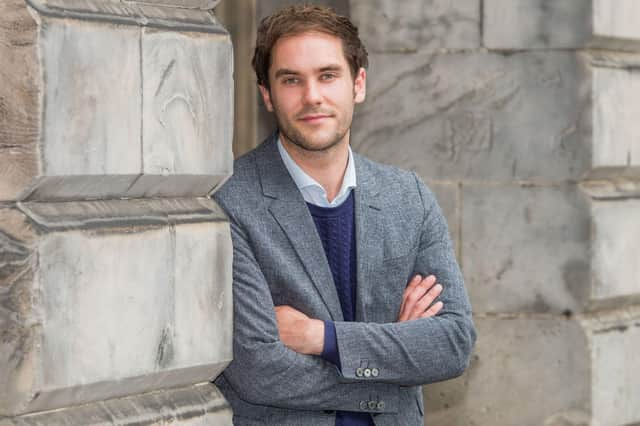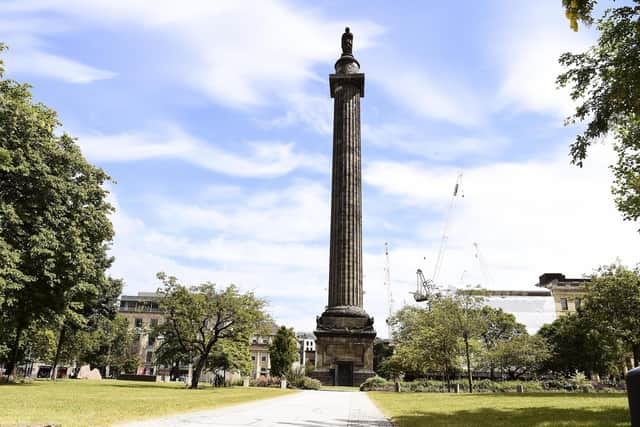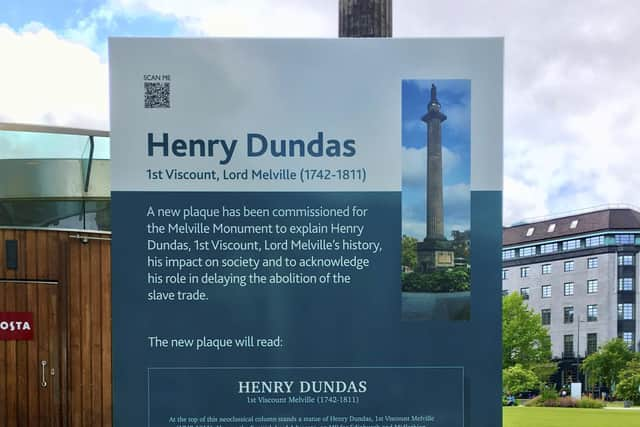‘A responsibility to face up to our city’s past’ says Edinburgh council leader


In his weekly update to councillors, set to be presented at this week’s full meeting of Edinburgh City Council, he also also called on capital residents to ‘celebrate the good and acknowledge the bad’.
Last month, the council appointed Sir Geoff Palmer, Scotland’s first black professor, to lead a review of Edinburgh’s statues and street names which commemorate those with close links to slavery and colonialism.
Advertisement
Hide AdAdvertisement
Hide AdSir Geoff, who is a leading human rights activist, will chair the Edinburgh Slavery and Colonialism Legacy Review Group, which is due to meet for the first time before the end of the year.


The move comes in the wake of protests over the Melville monument in St Andrew Square, which commemorates 18th century Home Secretary Henry Dundas, 1st Viscount Melville, who is seen as responsible for delaying the abolition of slavery in Britain by 15 years from 1772 to 1807. The Black Rights Matter movement has seen cities across the globe reflect on street names, monuments and statues which have links to the cruel trade in human flesh.
In his letter, councillor McVey wrote: “Last month we appointed eminent professor and human rights activist Sir Geoff Palmer to chair the new independent Edinburgh Slavery and Colonialism Legacy Review Group.
“Sir Geoff brings a wealth of experience, knowledge and leadership to the post and is currently recruiting further members to the group.
“Together they will consider any features within the council boundary that commemorate those with close links to slavery and colonialism including, but not limited to, public statues and monuments, street or building names.


“The group will ultimately make recommendations to the council about the short and long-term measures we might take to redress this history.
“We have a responsibility to face up to our city’s past – celebrating the good and acknowledging the bad.
“Our history must be honest so we can best understand its impact on modern-day Edinburgh.
Advertisement
Hide AdAdvertisement
Hide Ad“This review is about the story of our capital – it’s not just about statues, it’s about people living here now and the place that they call home.”


A message from the Editor:
Thank you for reading this article. We're more reliant on your support than ever as the shift in consumer habits brought about by coronavirus impacts our advertisers.
If you haven't already, please consider supporting our trusted, fact-checked journalism by taking out a digital subscription.
Comments
Want to join the conversation? Please or to comment on this article.